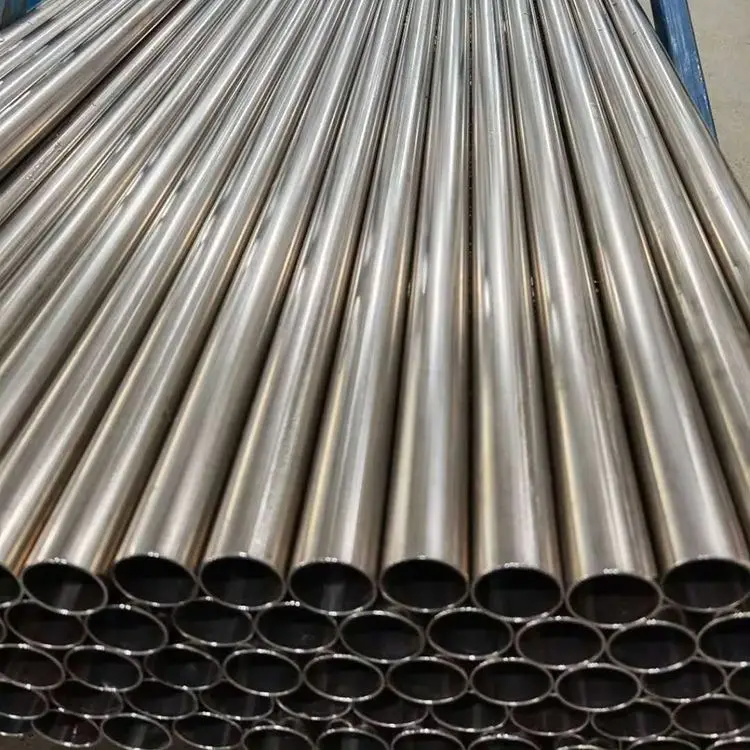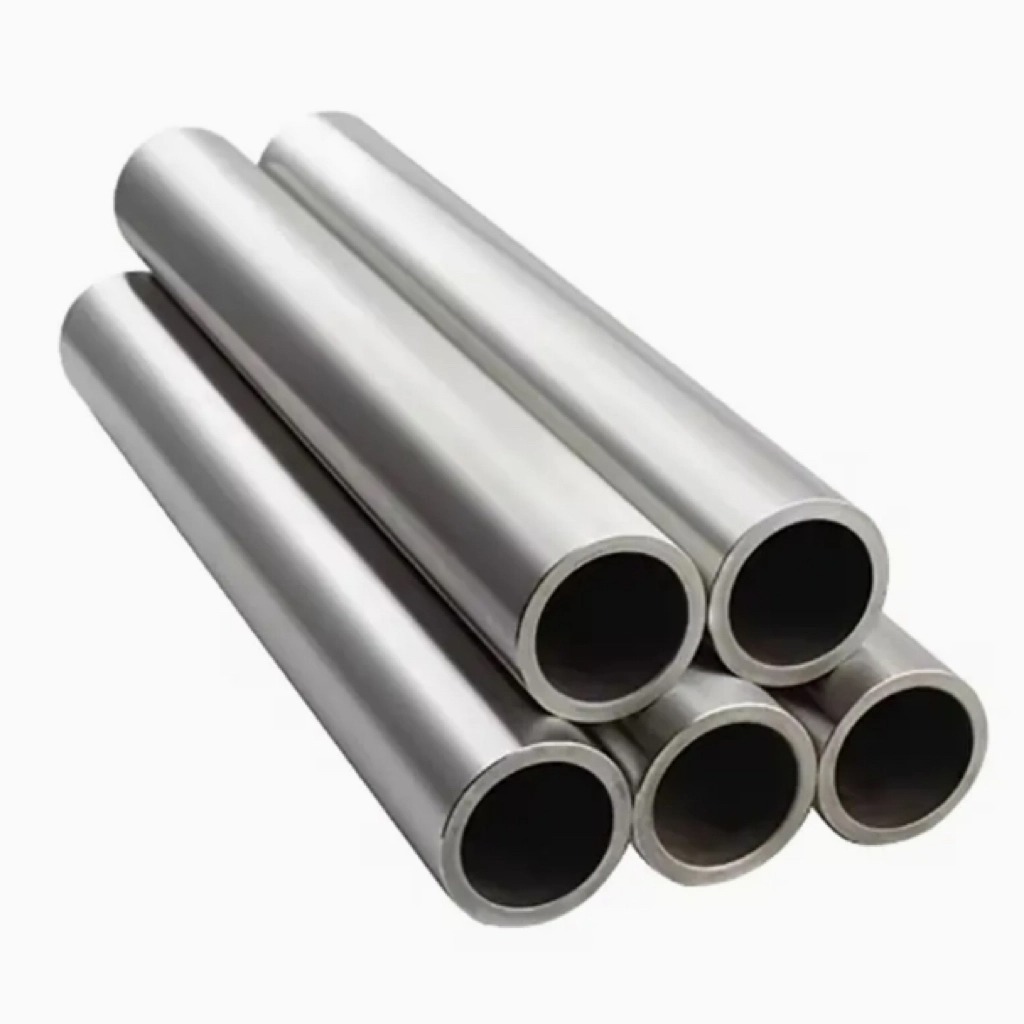T: +86-512-58335585
E: sale@chewit.cn
E: sale@chewit.cn
Shuangshan Road, Jingang Town, Zhangjiagang City, Jiangsu Province, China
Views: 194 Author: Site Editor Publish Time: 2025-07-09 Origin: Site
Titanium pipes are more than just shiny metal tubes. They're advanced materials engineered for performance in extreme conditions—think of them as the unsung heroes behind the scenes of aerospace missions, nuclear plants, and offshore drilling platforms. In this article, we will explore the multifaceted uses of titanium pipe, break down its properties, and discover why it’s often chosen over other materials like stainless steel or carbon steel.
Titanium pipes are hollow cylindrical structures made primarily from titanium, one of the strongest and lightest metals available. Known for their high strength-to-weight ratio, exceptional corrosion resistance, and biocompatibility, these pipes are indispensable in critical applications across various industries.
Unlike conventional pipes, titanium pipes are resistant to most corrosive agents—including seawater, acids, and industrial chemicals. This resistance makes them perfect for aggressive environments where other metals would degrade quickly. They're also highly ductile, which means they can be formed or welded into complex shapes without cracking. These features make titanium not just useful—but often essential.
The unique properties of titanium are not just theoretical—they directly translate into real-world advantages. Whether it’s a jet engine or a deep-sea pipeline, titanium pipes offer unmatched reliability and longevity.

Titanium pipe is a silent workhorse in industries where failure is not an option. Below are some of the key sectors that rely on titanium pipe, each for its own distinct reasons.
In aerospace engineering, every gram counts. Titanium’s low density—about 60% that of steel—makes it a favorite for weight-sensitive structures like aircraft hydraulic lines, fuel transfer systems, and engine components. Titanium pipes are capable of withstanding the high temperatures and stresses found in jet engines and space vehicles. They also offer excellent fatigue resistance, a must in the high-vibration environments of flight.
Chemical plants are filled with reactive substances—acids, alkalis, solvents—that can rapidly corrode standard piping. Titanium’s outstanding resistance to chlorides and oxidizing agents makes it ideal for transporting aggressive chemicals. It's especially common in the production of chlorine, nitric acid, and urea.
In these environments, titanium not only reduces the frequency of maintenance and replacement but also improves overall plant safety. This is critical when handling toxic or highly reactive compounds.
Titanium’s resistance to seawater corrosion is legendary. Offshore oil platforms, desalination plants, and subsea pipelines benefit enormously from titanium pipe. It withstands saltwater without pitting, crevice corrosion, or biofouling—a key problem with copper alloys.
Additionally, titanium’s high tensile strength and ability to maintain integrity under pressure make it perfect for deep-sea applications where conventional metals fail.
Beyond heavy industry, titanium pipes have vital uses in healthcare and sustainability efforts.
Titanium is biocompatible—it doesn’t trigger immune responses when implanted in the human body. While pipes are not implanted directly like screws or rods, titanium tubing is used in medical equipment such as surgical instruments, fluid delivery systems, and heat exchangers for sterilizers. Its non-toxic nature, combined with easy sterilization, makes it indispensable in modern hospitals and laboratories.
As industries push toward more sustainable solutions, titanium pipes are finding roles in eco-friendly technologies. Wastewater treatment plants use titanium pipes for systems handling aggressive sludge and chemicals. They are also used in exhaust scrubbers and flue-gas desulfurization systems to reduce industrial emissions.
In this way, titanium supports not just durability but also environmental responsibility.
To appreciate the value of titanium pipe, it’s helpful to compare it with more conventional materials.
| Property | Titanium Pipe | Stainless Steel Pipe | Carbon Steel Pipe |
|---|---|---|---|
| Density (g/cm³) | ~4.5 | ~8.0 | ~7.8 |
| Corrosion Resistance | Excellent | Good | Moderate |
| Strength-to-Weight Ratio | Very High | Moderate | Low |
| Cost | High | Medium | Low |
| Temperature Resistance | Excellent | Good | Moderate |
| Lifespan in Harsh Conditions | 20–40 years | 10–20 years | 5–10 years |
From the table, it’s clear that titanium pipe excels in performance, especially in aggressive or weight-sensitive applications. While cost may be higher upfront, the long-term benefits often justify the investment.
The benefits of titanium pipe extend far beyond corrosion resistance. Here's a breakdown of why engineers and decision-makers often turn to this remarkable material.
Titanium pipes often last decades without degradation, even in harsh chemical or marine environments. This drastically reduces maintenance frequency, downtime, and lifecycle costs. Over the long term, the high initial cost pays off in reliability and efficiency.
Titanium performs consistently across a wide range of temperatures—from sub-zero conditions to over 600°C (1112°F). This makes it ideal for heat exchangers, condensers, and high-temperature fluid systems where thermal expansion and contraction are concerns.
Contrary to popular belief, titanium is not difficult to work with when proper techniques are used. Titanium pipes can be welded, bent, and shaped with high precision. This allows for custom configurations in complex systems without compromising strength.
A lighter pipe means easier transport, handling, and installation. In industries like aerospace and automotive, weight savings translate into fuel efficiency and cost reductions. Even in civil infrastructure, lighter materials can simplify structural support requirements.

Titanium pipe is not one-size-fits-all. It comes in various grades and must meet international standards depending on the intended application.
Grade 2 (Commercially Pure Titanium): Best for chemical processing and marine use.
Grade 5 (Ti-6Al-4V): High strength, used in aerospace and medical industries.
Grade 7: Alloyed with palladium for enhanced corrosion resistance.
ASTM B861 – Seamless titanium pipe
ASTM B862 – Welded titanium pipe
ASME SB-337 – Pressure piping applications
Engineers must select the right grade and standard based on factors like pressure, temperature, and environmental exposure.
Yes. Although titanium is more expensive initially, its lifespan, low maintenance, and superior performance in demanding environments often result in a lower total cost of ownership.
Absolutely. Titanium is non-toxic and resistant to biofouling, making it suitable for potable water systems, especially in corrosive environments like coastal regions.
Titanium pipes come in a wide range of sizes, from small-diameter tubing (1/8 inch) to large industrial pipes over 24 inches in diameter. Custom sizes are also available for specialized applications.
Yes, titanium is fully recyclable without losing its properties, which aligns with modern sustainability and environmental standards.
Titanium pipe is not merely a technical choice—it’s a strategic investment in durability, performance, and sustainability. Whether you're designing a high-performance aircraft, building a chemical plant, or upgrading marine infrastructure, titanium offers a level of reliability and resilience unmatched by traditional materials.
Its high upfront cost is balanced by its longevity and performance, making it a wise choice for engineers who demand the best. As industries evolve and environments become more demanding, titanium pipe stands out as a forward-looking solution for the world’s toughest challenges.